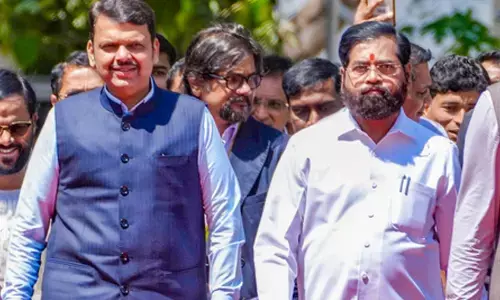Unwise for India to put blanket ban on cryptos

Crypto currency
A new monograph by the Observer Research Foundation, in collaboration with the Esya Centre, presents a deep-dive into the growth of cryptocurrency in India and proposes a balanced regulatory approach.
A new monograph by the Observer Research Foundation, in collaboration with the Esya Centre, presents a deep-dive into the growth of cryptocurrency in India and proposes a balanced regulatory approach. According to the study, it would be unwise for India to place bans on private crypto assets, when it has the ability to capitalise on the opportunity offered by cryptocurrency.
The report offers key policy suggestions on building the ideal crypto regulatory framework that would both benefit India's economy and ensure consumer welfare.
The Indian crypto asset industry has witnessed exponential growth over the last five years. Analysts suggest that more than 15 million Indians now hold digital currencies. As a result, cryptocurrencies, like any other financial asset, need to be regulated in order to ensure consumer welfare as well as promote innovation. This is the key finding of Regulating Crypto Assets in India, a report that has been jointly published by the Observer Research Foundation and Esya Centre, two New Delhi-based public policy think tanks.
The report is a first-of-its-kind deep-dive into the world of cryptocurrency in India – one of the fastest growing consumer-bases globally. This analysis comes at a time when New Delhi aims to introduce a bill to regulate the asset.
The report argues that India is well placed to capitalise on the opportunity that crypto assets present due to its expanding private crypto market. Hence, it would be imprudent to place a blanket ban on private crypto assets. This would result in significant revenue loss to the government and may encourage nascent industries to operate illegally. Instead, the report suggests a balanced regulatory approach, which addresses the concerns of fiscal stability, money laundering, investor protection and regulatory certainty while fostering innovation. "Most regulatory formulae necessary to address the policy concerns related to crypto-assets, such as investor protection, foreign exchange management, money-laundering and tax evasion, already exist in financial legislation," says Meghna Bal. "They just have to be adapted to accommodate an emerging technological paradigm. The recommendations in our report show how this can be done."
In India, classifying crypto as a security, good, or capital asset could lead to unintended restrictions on investment or leave regulatory gaps in key policy areas. A sui generis crypto framework that adopts the nuances of the crypto industry would be more appropriate and in keeping with emerging global trends. The report also lays out suggestions for lawmakers on what a crypto regulatory framework must include: it must be technology neutral, innovation friendly and consistent, to fully harness India's potential in this domain. Among other things, the framework must lay down clear definitions, identify the relevant regulatory bodies and create KYC/anti-money laundering obligations, the report says.
The regulatory framework should also protect crypto asset service providers from being liable for the actions of investors on their platform. This will help asset service providers innovate and scale new crypto-based products and offerings.
The report proposes that the government adopt a co-regulatory approach where industry associations and authorities such as SEBI, the RBI, and the Ministry of Finance share the responsibility of oversight. Such an approach follows the Japanese model, where authorities have tasked industry associations to enforce regulations. Providing incentives to industry whistle-blowers could help players within the crypto market self-regulate.
What India needs is a facilitative regulatory framework that would boost the growth of India's crypto ecosystem while addressing any possible harms to consumers and society at large.











